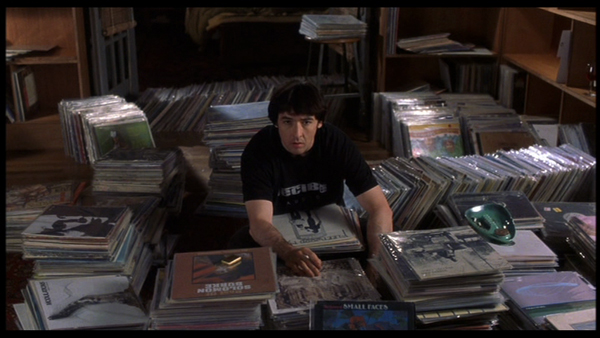Vinyl has definitely made a comeback throughout the years. The sound quality, nostalgia, layout and cover art are just a few reasons many of us continue to collect, purchase and maintain vinyl. Recently, Billboard Charts began to track statistics of the top selling vinyl sales for 2015 to date. Many of us here at LYRASIS who are vinyl collectors were surprised that Taylor Swift’s 1989 LP tops the list, but it was exciting to see that the format is gaining traction again.
With the resurgence of vinyl and in continuation of our earlier article Bungalow of Books: Caring for your personal collections, we wanted to share our thoughts on best practices of caring for vinyl whether it’s new, reissued or an original pressing. Despite what ZZ Top’s Billy Gibbons states, “Water doesn’t hurt a vinyl record. Put it into a dishwasher and you’re fine”. Don’t do that! Follow these tips instead

Handling your vinyl
- Handle your records by the edges.
- Handle records with clean hands and keep food and drink away from records
Cleaning your vinyl
- Cleaning a record with a carbon fibre brush before and after play is the best way to keep your records clean and sounding great.
- A carbon fibre brush is only meant to brush gently over the surface. They are not meant to enter the grooves of the record.
- Use distilled and deionized water.
- Always remove surface debris and dust before any deep clean. Use a record brush, these are easy to find and purchase.
- Record cleaning kits are available at your local record store and online.
- Sadly, no amount of cleaning will repair a damaged record.
- New records are not necessarily clean records. Clean your records before the first play.
- Do not use rubbing alcohol to clean a vinyl record. It takes away the shine. It also will damage 78’s.
- You can use a small amount of dish soap or a mixture of water and white vinegar.
- The only “down-side” of vinegar is that it is acidic, and if you live in a climate where mold and mildew are a problem, an acidic environment can promote that growth.
- Don’t use natural vinegar. Only white vinegar.
- Always use a clean sponge and cloth.
- A simple swipe with a new, lint free anti-static cloth is sufficient for new or not played often records.
- If your records have been stored for a time and you have dirt or mold on them you may want to wash them with a few drops of dishwashing soap and a soft cloth.
- Don’t soak your records. This will unfix the label. If the label gets wet, dry it with a clean cloth.
- There are professional cleaner kits you can purchase if you are unsure how to wash your records.
Storing
- Always store your vinyl standing up.
- If you lay your records in a stack they will will warp over time.
- Don’t allow a lot of space between records causing them to lean, this will also cause warping.
- Just like pets and children, don’t leave your vinyl in a hot car. It will warp. (Our marketing content manager lost a handful of Depeche Mode 12” singles on a nice spring day. Even on deceptively mild days, car heat will warp records)
- Keep vinyl away from windows, doors and vents.
Extra considerations
- Avoid the plastic inner sleeve if your record comes in one. It will adhere to the vinyl in light heat and if you can get it off, leaves marks that won’t come off the vinyl.
- We recommend plain old white paper sleeves with the cut corners. These are inexpensive, and the cut corners make sliding the record sleeve in and out of the jacket much easier.
- Polylined sleeves are fine. The lining of the sleeve serves to keep static down.

